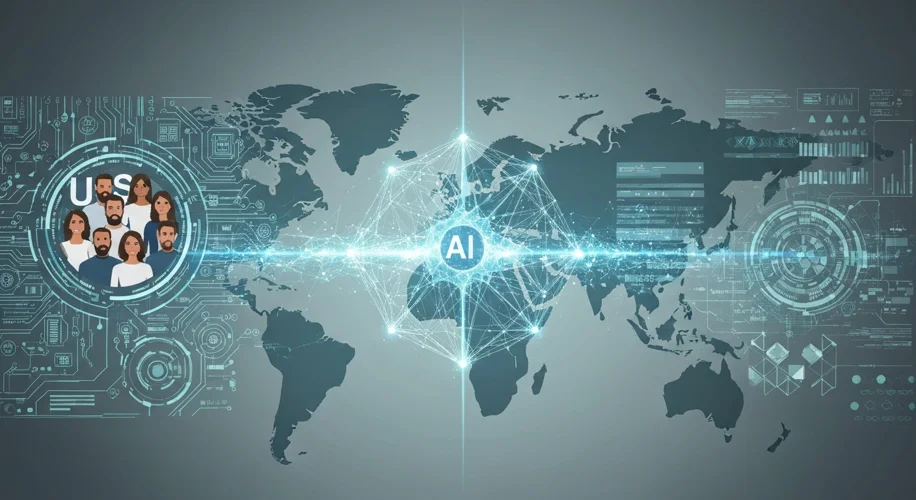It feels like just yesterday we were marveling at simple chatbots. Now, the pace of artificial intelligence development is staggering, and a quiet but intense race is unfolding between nations, particularly the US and China.
From my perspective, having spent decades in the tech industry, I’ve seen innovation cycles, but AI feels different. It’s not just another product; it’s a foundational technology that could reshape economies and societies. This makes understanding the competitive landscape crucial.
When we talk about AI development, it often boils down to the models themselves – the brains behind the operation. Both the US and China are pouring vast resources into creating more powerful and sophisticated AI. We’re seeing advancements in areas like natural language processing, computer vision, and complex problem-solving. Companies and research institutions in both countries are pushing the boundaries, often at a breakneck speed.
China’s approach to AI development has been characterized by a strong, centralized national strategy. They’ve focused on data collection and a rapid iteration cycle for their AI models. We’ve seen significant progress in areas like facial recognition and large-scale data analysis, driven by a vast population and a proactive approach to data utilization.
On the other side, the US has a more decentralized ecosystem, driven by a mix of private sector innovation, venture capital, and academic research. This approach has fostered incredible breakthroughs, often originating from startups and established tech giants alike. The focus here has been on foundational research, ethical considerations, and building complex, general-purpose AI capabilities.
What are the geopolitical implications? Well, AI’s influence extends far beyond technology itself. It impacts economic competitiveness, national security, and even the way we understand truth and information. The country that leads in AI development could set the standards for future technologies, influencing global norms and trade.
It’s crucial to consider the inherent differences in how these nations approach data privacy and ethical deployment. These aren’t just technical details; they have real-world consequences for individuals and societies. As AI becomes more integrated into our lives, from healthcare to transportation, these foundational differences in approach will become even more apparent.
The key question for all of us is how to foster innovation while ensuring that these powerful tools are developed and used responsibly. It requires thoughtful consideration, open dialogue, and a willingness to learn from each other’s successes and challenges. The AI race isn’t just about who builds the smartest machine; it’s about building a future we can all trust.

